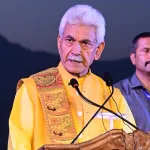In a determined effort to safeguard the rich cultural heritage of Kashmir’s Bandh Pather, Ghulam Mohiuddin Bhagat, renowned as Aajiz in the literary world, has taken up the mantle of preserving this traditional art form for the benefit of younger generations.
Hailing from Wathoora village in the heart of Kashmir’s Budgam district, Aajiz is deeply rooted in the Sufiyana Bhand Gharana of Wathoora. He has authored a remarkable collection of seven books dedicated to the fading art of Bandh Pather.
Bandh Pather, a traditional form of Kashmiri theater, boasts a history as old as the region itself. Aajiz passionately believes that this traditional theater served as a vital conduit between the people and their rulers, acting as a medium through which advisories and edicts from the authorities were effectively communicated to the masses.
Aajiz’s extensive repertoire of books, including titles such as “Our Heritage: Preservation and Promotion of Bhand Pather,” “Mani Sawi Dep,” “Kashmiri vits,” “Pather Chu Jari,” “Soon Meeras,” and “Bhand Pather Rangi Bhwach,” meticulously explore the origins, historical roots, and multifaceted dimensions of Bhand Pather.
Furthermore, his upcoming work, “Folk Tales of Kashmir Performances,” is currently in progress and is anticipated to be published later this year.
With a rich legacy spanning over half a century in this art form, Aajiz is disheartened by the dwindling state of Bandh Pather due to government neglect. He underscores the exceptional skill set of Bhand actors, who were proficient in acting, dancing, acrobatics, and music. Unlike conventional theater, Bhand Pather solely relies on live performances, eschewing recorded music or backstage sound.
Throughout history, Bhand Pather played a pivotal role in raising awareness about societal issues and critiquing rulers. It stood as a unique form of folk theater that spotlighted the problems faced by the public, effectively conveying them to the government.
Regrettably, despite its historical significance, Bhand Pather has seen a gradual decline in vitality and dramatic impact over time. Today, only a handful of Bhands, donning tattered costumes, can still be found in select villages, including Wathoora.
Aajiz warmly reminisces about a bygone era when Bhand Pather artists would travel to villages and cities, captivating audiences with their plays during festive occasions like Eid, spreading joy and happiness. However, with the advent of cinema, radio, and digital media, the government’s and people’s attention shifted away from this traditional art form.
His relentless dedication to preserving Bhand Pather has not gone unnoticed. He has been honored with a senior fellowship by the Ministry of Culture for his outstanding contributions to safeguarding this invaluable cultural treasure. Researchers from India and abroad frequently seek his expertise to enhance their studies on Bhand Pather, underscoring its enduring significance in Kashmiri theater.
Aajiz’s role in Bhand Pather extends beyond his musical talents—he also serves as a comedian in many plays. During his heyday, open spaces would throng with crowds as audiences gathered to relish these captivating dramas, providing them with a pure form of entertainment that contributed to their overall well-being.
Having performed in various parts of India, Aajiz fondly remembers the warm reception they received. Audiences were drawn primarily by their desire to immerse themselves in the performances, with little else matter.
The themes explored in these plays often delved into pressing societal issues, addressing educational challenges, the menace of drugs, corruption, peace, and prosperity. These themes were ingeniously presented through the vibrant medium of Bhand Pather theater, captivating audiences in twenty different locations throughout Kashmir.
Regarding the future of Bhand Pather in Kashmir, Aajiz emphatically underscores the need for the government to take proactive measures to revive this centuries-old theatrical art form. Over the years, financial assistance from the government has dwindled, with promised grants for registered Bhand theaters and pensions for elderly artists put on indefinite hold.
While the central government has made some strides by offering scholarships to aid in the revival of this art form, substantial action remains pending. The financial hardships endured by Kashmiri Bhands have plunged many into poverty, making it increasingly difficult for them to sustain their livelihoods.
Aajiz fervently appeals to the government to consider the implementation of special pension benefits for veteran artists who have dedicated their lives to Bhand Pather, thereby safeguarding this invaluable cultural treasure at every level. It is a heartfelt plea to ensure that the legacy of Bandh Pather continues to flourish in the hearts and minds of the people of Kashmir.





